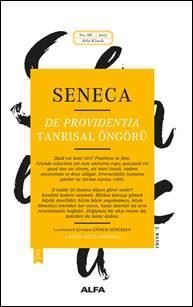
Tanrısal Öngörü - Yunan ve Latin Klasikleri
Quid est boni viri? Praebere se fato. Grande solacium est cum universo rapi; quicquid est quod nos sic vivere, sic mori iussit, eadem necessitate et deos alligat. Irrevocabilis humana pariter ac divina cursus vehit.
So what is the duty of a good person? Offering yourself to fate. Being blended into the whole is a great consolation; Whatever commands us to live this way and die this way, the gods are also bound by the same necessity. An unchanging flow brings both humans and gods before it.
De Providentia (Divine Foresight) by the Roman thinker Seneca, who died by suicide on the orders of Emperor Nero in 65 AD, is one of the most important texts in which major concepts related to Stoic philosophy such as luck, fate and divine foresight are examined. In addition to being a classical literary text with its style woven with the subtleties of the art of oratory, when evaluated in terms of its content being lined with Stoic moral principles, questioning the relations between gods and humans in detail, illuminating the values of good and evil with clear and distinct expressions, and its approach to the concepts of life and death, the surviving works from Rome are It becomes an exemplary moral philosophy text. As the human mind questions the universe, God, man, goodness, evil, nature, fate, luck, misfortune, patience, life and death, the poems that bring together literature and philosophy in their lines
De Providentia will shed light on it forever with its sincere language.
(From the Promotional Bulletin)
Dough Type: 1. Dough
Number of Pages: 100
Size: 12 x 20
First Print Year: 2014
Number of Printings: 3rd Edition
Language Turkish
| Publisher | : | Alpha Publishing |
| Number of pages | : | 100 |
| Publication Year | : | 2014 |
| ISBN | : | 9786051069739 |
| The heart | : | Turkish |


